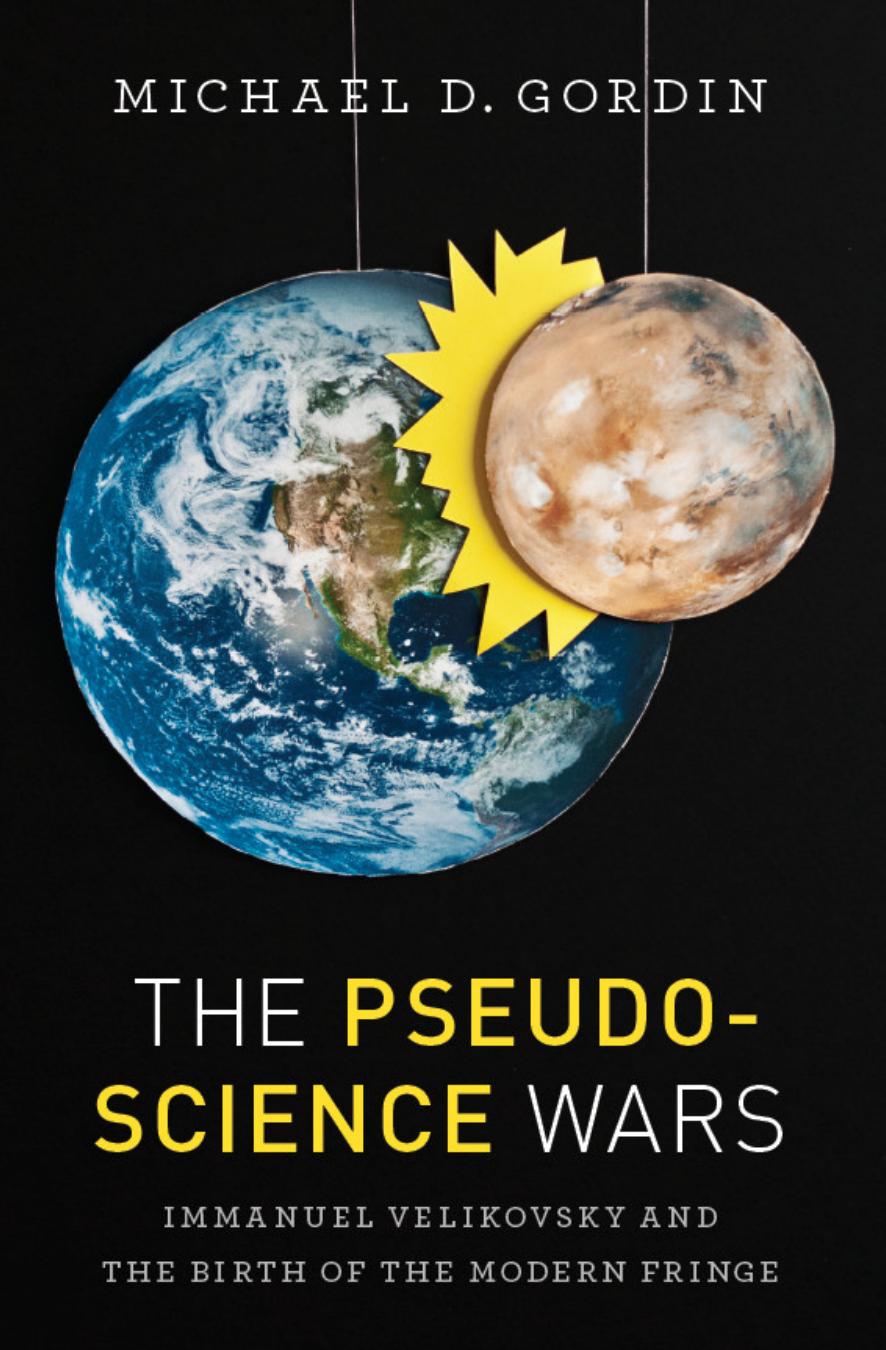The Pseudoscience Wars: Immanuel Velikovsky and the Birth of the Modern Fringe by Michael D. Gordin

Author:Michael D. Gordin
Language: eng
Format: epub, pdf
Publisher: University of Chicago Press
Published: 2012-01-02T16:00:00+00:00
6 · Strangest Bedfellows
Harold Urey disliked Immanuel Velikovsky. Winner of the 1934 Nobel Prize in Chemistry for his 1932 discovery of deuterium (a heavy isotope of hydrogen), Urey had long been a leading statesman of science, and in the 1960s he became involved with the rapidly expanding space program. This attention to matters extraterrestrial, as well as his visible position among the luminaries of American science, brought him to the attention of the Velikovskians. It was not attention that Urey relished.
“I am sorry to see that you have gotten mixed up in the Velikovsky case. Velikovsky was a charlatan,” he wrote to Velikovsky’s close associate Alfred De Grazia in 1964, in response to an approach by the latter decrying the sharply negative review in the Bulletin of the Atomic Scientists of De Grazia’s special Velikovsky issue of the American Behavioral Scientist. “I am terribly concerned at present about the lack of control in scientific publication. Science has always been aristocratic. Not everyone could get his ideas published in effective journals. . . . Today anyone can publish anything. . . . [T]here is often so much noise that one cannot hear the signals.”1 Intimates of Velikovsky’s inner circle did not keep secrets from their polestar, and De Grazia shared the letter with Velikovsky. Velikovsky, predictably, was infuriated, and he penned a hostile letter in De Grazia’s name that he urged be sent to Urey, to put the elitist obscurantist in his place with what sounded almost like epistolary blackmail: “Would Velikovsky be less forgiving he would have made public the documents that would ruin completely and for ever several of his chief adversaries, a number of luminaries some of which are fading in their own lifetime. The late Einstein urged him to do so and to publish this documentary. The provocation of the BAS and of your letter may compel him to do exactly this.”2 De Grazia, at this moment a cooler head and never one to take kindly to ghostwriting (even from Velikovsky), opted for a milder tone and picked up on Urey’s choice of language: “Your kind of scientific aristocracy is precisely why your subsequent claims are laughable: if there is any villainous theme in the history of science, it is the continuing attempt to deny a voice in the organs of science to iconoclasts, outsiders, and just plain kleine Menschen.”3
This is a familiar theme. In the 1950s, in the wake of the first battles surrounding Worlds in Collision, the hostile reviews by scientists, and then the public exposure and interpretation of a fledgling boycott campaign against Macmillan, Velikovskian rhetoric centered on Galileo against the Church, which in itself was a variant of David against Goliath. Velikovsky spoke alone, a voice of reason against hidebound dogmatism and privilege. The Urey exchange lay on the cusp of something new. This was no longer just David against Goliath. Velikovsky was gathering allies in the pseudoscience wars—or, to put it more accurately, allies came to him without his doing much at all to recruit them (and often a good deal to drive them away).
Download
The Pseudoscience Wars: Immanuel Velikovsky and the Birth of the Modern Fringe by Michael D. Gordin.pdf
This site does not store any files on its server. We only index and link to content provided by other sites. Please contact the content providers to delete copyright contents if any and email us, we'll remove relevant links or contents immediately.
Man-made Catastrophes and Risk Information Concealment by Dmitry Chernov & Didier Sornette(6013)
The Revenge of Geography: What the Map Tells Us About Coming Conflicts and the Battle Against Fate by Kaplan Robert D(4076)
Zero Waste Home by Bea Johnson(3835)
COSMOS by Carl Sagan(3619)
Good by S. Walden(3549)
In a Sunburned Country by Bill Bryson(3537)
The Fate of Rome: Climate, Disease, and the End of an Empire (The Princeton History of the Ancient World) by Kyle Harper(3062)
A Wilder Time by William E. Glassley(2860)
Camino Island by John Grisham(2797)
Organic Mushroom Farming and Mycoremediation by Tradd Cotter(2690)
The Ogre by Doug Scott(2679)
Human Dynamics Research in Smart and Connected Communities by Shih-Lung Shaw & Daniel Sui(2500)
Energy Myths and Realities by Vaclav Smil(2490)
The Traveler's Gift by Andy Andrews(2460)
9781803241661-PYTHON FOR ARCGIS PRO by Unknown(2365)
Inside the Middle East by Avi Melamed(2352)
Birds of New Guinea by Pratt Thane K.; Beehler Bruce M.; Anderton John C(2254)
A History of Warfare by John Keegan(2240)
And the Band Played On by Randy Shilts(2201)
